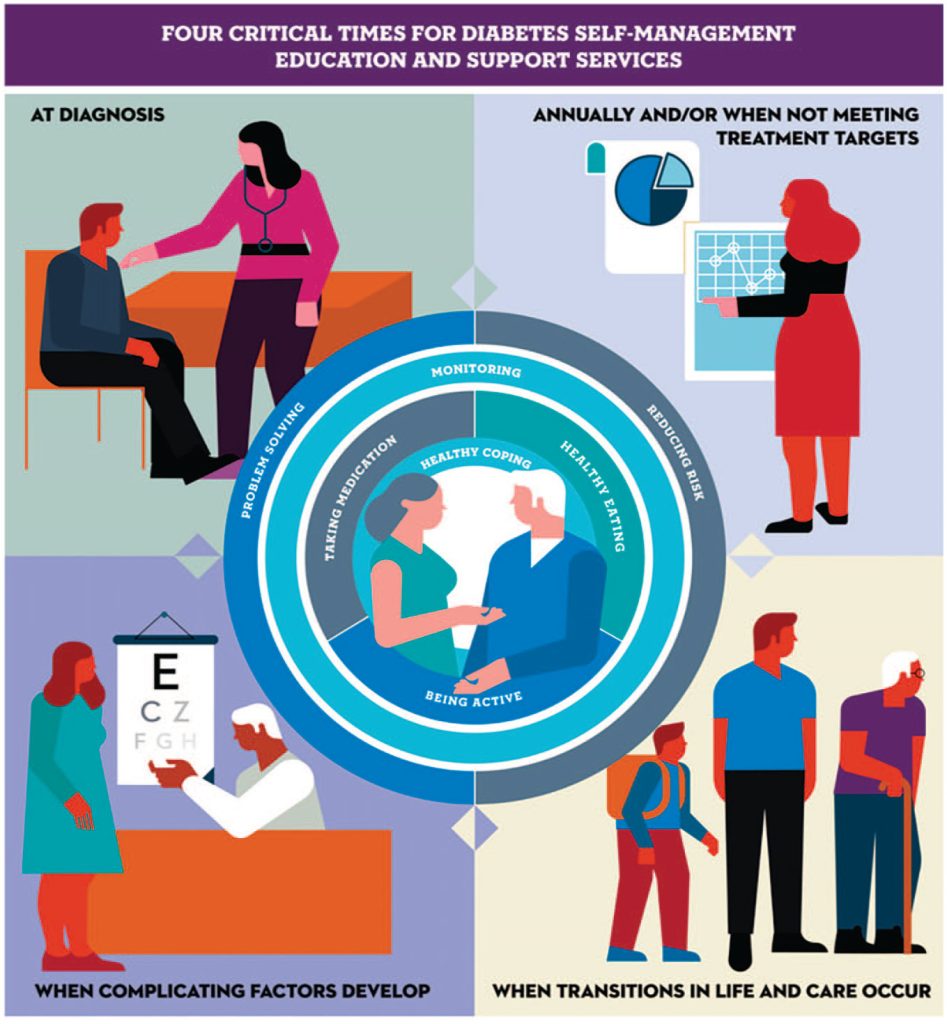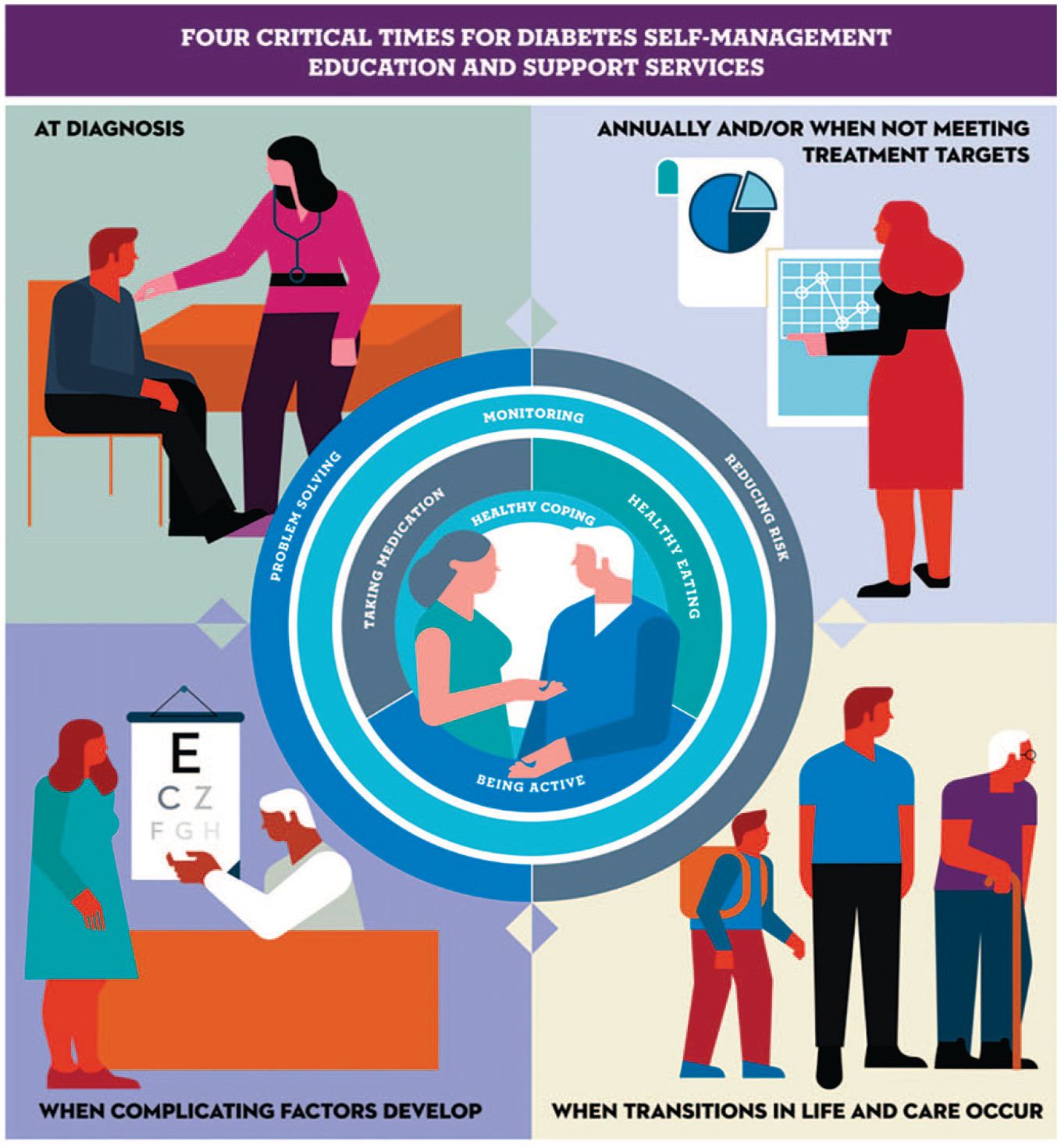Living with diabetes can feel overwhelming—between blood sugar checks, medications, diet changes, and doctor visits, it’s easy to feel lost. That’s where a clinical diabetes educator steps in. These trained professionals don’t just give advice—they partner with you to build a personalized, sustainable plan for thriving with diabetes. Whether you’ve just been diagnosed or have managed the condition for years, working with a clinical diabetes educator can make a life-changing difference.
What Exactly Does a Clinical Diabetes Educator Do?
A clinical diabetes educator (often certified as a CDCES—Certified Diabetes Care and Education Specialist) is a healthcare professional specializing in helping people understand and manage diabetes. They go beyond basic medical advice to address your lifestyle, emotions, and daily challenges.
According to the American Association of Diabetes Care and Education Specialists (ADCES), individuals who work with a diabetes educator are more likely to meet blood sugar targets, reduce complications, and feel confident in self-care.
Their core responsibilities include:
- Teaching blood glucose monitoring techniques
- Creating customized meal and activity plans
- Explaining how medications work
- Supporting emotional well-being and stress management
- Helping prevent or delay diabetes-related complications
Think of them as your coach, teacher, and advocate—all rolled into one.
How Is a Clinical Diabetes Educator Different From a Doctor or Dietitian?
Great question! While your primary care physician manages your overall health and prescribes treatment, and a dietitian focuses on nutrition, a clinical diabetes educator takes a holistic, patient-centered approach specifically for diabetes.
| Primary Care Doctor | Overall health, diagnosis, prescriptions | MD or DO |
| Registered Dietitian | Meal planning, macronutrient balance | RD or RDN |
| Clinical Diabetes Educator | Diabetes self-management education (DSME) | RN, RD, PharmD + CDCES certification |
Most clinical diabetes educators hold another healthcare license (like nursing or pharmacy) and earn the CDCES credential through rigorous training and exams. This dual expertise ensures they understand both clinical guidelines and real-world patient needs.
For more background on diabetes education as a field, see the Wikipedia page on Diabetes Educators .
Who Should Work With a Clinical Diabetes Educator?
You don’t need to be struggling to benefit from one. The American Diabetes Association recommends diabetes self-management education for all people with type 1, type 2, or gestational diabetes—at diagnosis and periodically thereafter.
You may especially benefit if you:
- Were recently diagnosed with diabetes
- Have A1C levels above target (typically >7%)
- Experience frequent low or high blood sugar episodes
- Are starting insulin or a new medication
- Feel anxious, confused, or frustrated about managing diabetes
- Want to prevent complications like nerve damage or vision loss
A 2022 study in Diabetes Care found that patients who received structured education from a CDCES reduced their A1C by an average of 1.0–1.5% within six months—comparable to adding a new medication, but without side effects.

How to Find a Qualified Clinical Diabetes Educator Near You
Finding the right educator is easier than you think. Follow these steps:
- Ask your doctor for a referral – Most clinics have partnerships with certified educators.
- Use the ADCES “Find a Specialist” tool – Visit adces.org/find and enter your ZIP code.
- Check insurance coverage – Medicare and most private insurers cover diabetes education (up to 10 hours in the first year, then 2 hours annually).
- Verify credentials – Look for “CDCES” after their name (formerly “CDE”).
- Schedule a consultation – Many offer free 15-minute intro calls to see if you’re a good fit.
Pro tip: Telehealth options are widely available. You can work with a clinical diabetes educator via video call—no travel needed.
What to Expect in Your First Session
Your initial visit typically lasts 60–90 minutes and includes:
- A review of your medical history, medications, and lab results (like A1C)
- Discussion of your daily routine, diet, activity level, and challenges
- Goal-setting (e.g., “I want to reduce nighttime lows” or “I need help reading food labels”)
- Creation of a short-term action plan with clear, achievable steps
For example, if you’re struggling with post-meal spikes, your educator might suggest:
“Try eating protein or fiber before carbs at dinner—like a handful of almonds before your rice. Check your blood sugar 2 hours after to see the difference.”
They’ll also teach you how to adjust based on real-time data, not guesswork.
Real Impact: A Patient Success Story
Meet Maria, 58, from Chicago. Diagnosed with type 2 diabetes, her A1C was 9.2%. She felt tired, confused by food labels, and scared of insulin.
After four sessions with a clinical diabetes educator:
- She learned carb counting using household measures (e.g., “½ cup cooked pasta = 1 carb choice”)
- Started walking 20 minutes after meals
- Switched from sugary coffee creamer to unsweetened almond milk
- Checked her blood sugar twice daily and logged trends
Within 4 months, her A1C dropped to 6.8%, she lost 12 pounds, and said: “I finally feel in control—not controlled by diabetes.”
Stories like Maria’s aren’t rare—they’re the norm when education meets empowerment.
FAQ: Your Top Questions About Clinical Diabetes Educators
Q: Do I need a referral to see a clinical diabetes educator?
A: It depends on your insurance. Medicare requires a physician referral, but many private plans don’t. Always check with your provider first—but don’t let paperwork stop you. Many educators help patients navigate this step.
Q: How much does it cost?
A: With insurance, most patients pay $0–$20 per session. Medicare covers 100% of approved DSME services when referred by a doctor. Without insurance, rates range from $75–$150/hour—but many offer sliding scales.
Q: Can a clinical diabetes educator prescribe medication?
A: No. Only licensed prescribers (doctors, nurse practitioners, physician assistants) can prescribe. However, educators can explain how your meds work, when to take them, and what side effects to watch for.
Q: Are virtual sessions as effective as in-person?
A: Yes. A 2023 meta-analysis in JMIR Diabetes found no significant difference in A1C reduction between virtual and in-person diabetes education. Convenience often leads to better attendance and consistency.
Q: How often should I meet with a diabetes educator?
A: Most people start with 3–4 sessions over 3 months, then check in every 3–6 months—or whenever life changes (new meds, weight loss, hospitalization). Think of it like a tune-up for your diabetes plan.
Q: What if I have prediabetes? Can they help?
A: Absolutely! Many clinical diabetes educators lead CDC-recognized National Diabetes Prevention Programs. These evidence-based programs cut type 2 diabetes risk by 58% through modest weight loss and activity goals.
Conclusion: Take Control—One Smart Step at a Time
A clinical diabetes educator isn’t just another healthcare provider—they’re your partner in building confidence, clarity, and control over your health. From decoding food labels to navigating insulin pumps, their guidance is practical, personalized, and proven to work.
If you or someone you love is living with diabetes, don’t wait for complications to act. Reach out to a CDCES today—your future self will thank you.
Found this helpful? Share it with a friend or family member who could use support managing diabetes. Together, we can turn diagnosis into empowerment. 💙

Leave a Reply